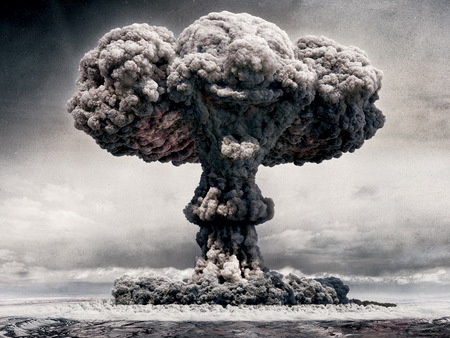Anniversary of Dropping the Bomb on Hiroshima
In memory of Hiroshima, here’s a powerful poem by Richard Tillinghast, written in the early 1960’s. Tillinghast is a former student of my father’s, who included the poem in his anthology Poems of War Resistance. I like how the poet initially finds hope in the cycle of life, only to have it sour on his tongue. The promise of “new greenness” is a mock promise in a world where we are still threatened with nuclear warheads (as was certainly the case in 1962).
I pick up an ominous allusion to Yeats’ “The Second Coming.” In the Irish poet’s vision of the apocalypse, we are waked from stormy sleep. In Tillinghast’s poem, “all of Europe seems/To drowse here, dazed in the sun towards death.”
A Poem on the Nuclear War, from Pompeii
By Richard Tillinghast
The August blackberries harden and sour.
Their vines rattle at a breath of volcanic dust
Through the portico of Jupiter Sator.
Plucked juicy from broken stone, the fruits suggest
A semblance of cycle. The principle could not be
More apparent; in the wreck of the past,
In the dead fusion of marble and lava, the seed
Of new greenness begins. But the berries sour on my mouth.
Hot wind and cinder sun have frayed
The vines and wizened the sweetness of the berries’ growth
Not only Pompeii, but all of Europe seems
To drowse here, dazed in the sun towards death.
It is a time of stopped time, when ruins
Of the human mind are tangled with stunted fruit
Of the future. A new sun blots Vesuvius—
Of earth and sky, the old but the new destroyer.
